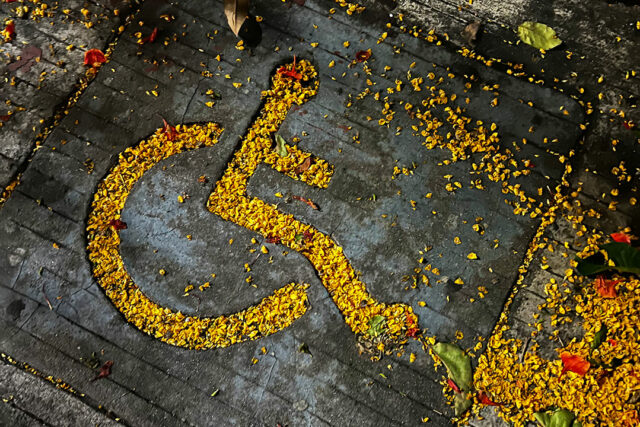
Static
By Marvin Tort

The Senate last week passed a bill that will allow senior citizens and Filipino migrant workers abroad to renew their passports without having to physically appear at consular offices. This, I believe, is a big step towards making renewals easier, particularly for people over 60 years old, and Filipino workers while at their posts on foreign soil.
What I do not understand, however, is why such a privilege was limited only to senior citizens and migrant workers while abroad. The bill excluded persons with disabilities or PWDs from skipping physical appearances during passport renewals. The fact is, many PWDs find it just as if not more difficult to move about than those in their 60s or 70s.
The bill provides under Section 5 that for “the renewal of passports by applicants who are sixty (60) years old and above and by migrant workers abroad, the DFA shall implement a system wherein the applicants may submit their application without the need to physically appear in the Office of Consular Affairs or any Consular Office, through the use of available technology.”
This is great news for our seniors and our migrant workers while at their foreign posts. But, if the bill’s intention is to make renewals easier for those who are physically unable or physically limited or physically restricted from making their way to consular offices to submit forms and biometric data, then shouldn’t PWDs be given this privilege as well?
Or, is the Senate working on the assumption that a PWD, given his or her physical restrictions, is not likely to travel abroad for leisure or to find work on foreign soil? Assuming a PWD working abroad falls under the category of migrant worker, and thus qualifies for the privilege of “non-appearance,” what about PWDs here at home who wish to travel abroad? They cannot enjoy the same privilege?
Our public transportation is far from PWD-friendly. And most PWDs do not have access to private transportation. For-hire cars are expensive, and many cannot accommodate people in wheelchairs. In short, it is just as, if not more difficult, for many PWDs to make it to consular offices to renew their passports. PWDs, like seniors, can make the effort for the initial application. But maybe renewal should be easier for PWDs as well?
Under the law, the privileges of seniors and PWDs are practically at par with respect to discounts and taxes. We even amended our building code to make our structures even more accessible to seniors, PWDs, pregnant women, and children. We designated special lanes, areas, and seats for them in public places and in public transportation.
But, when it comes to passport renewal, we consider the needs of seniors but not PWDs? To be blunt, an active and healthy migrant worker while abroad is more capable of making his or her way to a consular office for passport renewal than a PWD in his own country. So, why give the non-appearance privilege to the migrant worker but not the PWD?
Like many privileges, these can be abused. That is a given. And, perhaps, senators are worried that PWDs will abuse the privilege. But the risk of abuse is the same for seniors as well. So, if the issue is limited mobility and difficulty in physical access, then should not seniors and PWDs have the same privileges? Whatever happened to those with less in life having more in law?
There is an equalizer, however. Senate Bill No. 2001 also provides for upgrading the present passport online appointment system to an actual application portal to accept passport applications and renewals via the internet. For now, only passport applications appointments are done online. Actual application still requires physical appearance.
But Section 18 of Senate Bill 2001 provides that the Department of Foreign Affairs “is mandated to establish and maintain an online application portal and Electronic One-Stop Shop readily accessible on its official website to facilitate convenience of application and ease in gathering and submission of the requirements.”
I can only assume that this will pave the way for online application and renewal of passports in the future. But when this will be is anybody’s guess. Under the present system, forms are filled up and submitted online. But physical appearance becomes necessary for the gathering of biometrics, particularly fingerprints, iris scans, front-facing photographs. And signatures.
I am unaware of any technology to date that will allow the gathering of biometrics remotely or through any secured online system. So, an online application may be far off still. But online renewal is a strong possibility for the near future. Obviously, such a system will have to be in place for seniors and migrant workers while abroad. The question is, will PWDs get online access as well?
Meantime, whatever access is given to seniors should be made available to PWDs as well. Take note that I am not a PWD, nor am I related to any. But I have been advocating greater access for seniors and PWDs because one day we can all become one or the other or both. And seeing how other countries have accommodated aging societies, I believe we should do the same here.
MAIDEN NAMES AND PASSPORTS
Another concern with Senate Bill 2001 is Section 5 (f), which provides that “for a woman who wishes to revert to the use of her maiden name” in her passport, this can be done only “once and all her other existing identification cards and pertinent documents shall likewise reflect her maiden name.”
But what about women who use their passports as their primary ID? Cannot the passport be reverted to the maiden name ahead of other IDs? A woman may not have any other “valid” ID to revert? Knowing how slow the bureaucracy can be in matters like this, reverting all public documents to one’s maiden name can take a long time. This puts at a disadvantage any woman with the urgent need to travel either for work or for health emergencies.
And, the least credible argument in favor of this restriction in the bill is the national ID. It has been years since we applied for a national ID, and we have not received any to date. Imagine having to first revert your national ID to your maiden name? That can take forever. Meantime, you cannot change the name on your passport?
Yet, if you are a single woman applying for a passport, the basis for your identification is your birth certificate. No other “valid” ID required. But if you are widowed or separated, other than your birth certificate reflecting your maiden name, and all other documents proving the death of your husband or your separation from him, you need to first revert your other IDs to your maiden name before you can change your passport details?
The requirement is that initially, “all her other existing identification cards and pertinent documents shall likewise reflect her maiden name” before she can change her passport name. Again, if she has no other IDs, then the requirement is waived? What does the bill mean by “pertinent documents”? From where I sit, it seems that other than PWDs, widowed or separated women are also disadvantaged by the bill. Imagine being both.
Marvin Tort is a former managing editor of BusinessWorld, and a former chairman of the Philippine Press Council